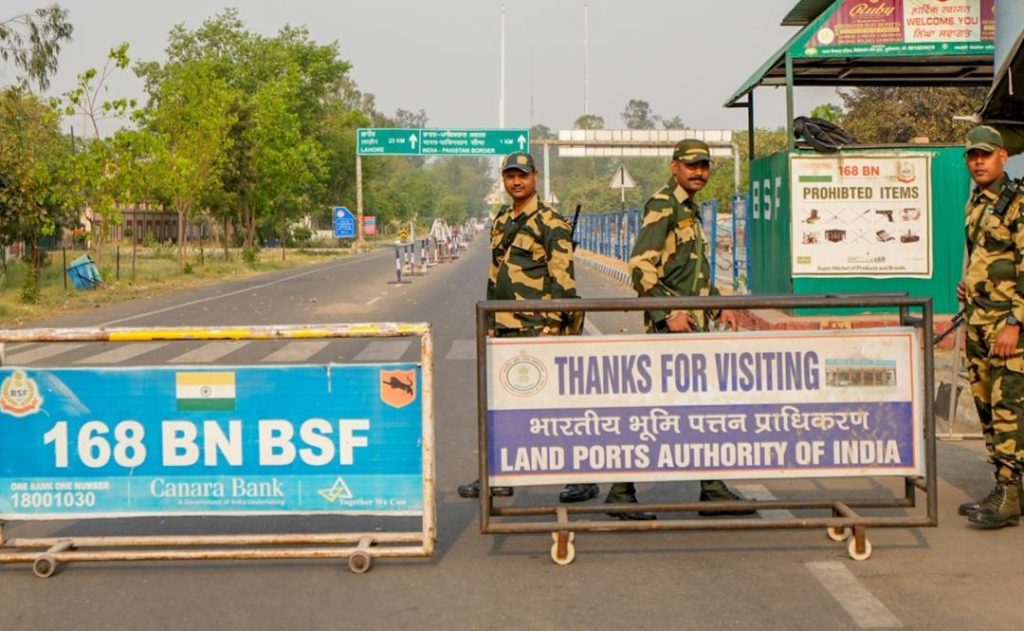
Attari-Wagah Border between India & Pakistan Completely Closed
The Attari-Wagah border, a significant international border between India and Pakistan, has been completely closed, according to a recent report by PTI. As of Thursday, no individual from either side was allowed to cross over to the other, marking a significant development in the already strained relations between the two nations.
This decision comes on the heels of Pakistan shutting down the border and refusing to accept its citizens who were deported by India. The mass deportations were triggered by the recent Pahalgam terror attack, which claimed the lives of 26 tourists.
The Pahalgam terror attack, which occurred on October 8, sent shockwaves across the country, with authorities scrambling to identify the perpetrators and bring them to justice. In the aftermath of the attack, India deported a large number of Pakistani nationals who were found to be linked to terrorist organizations. Pakistan, however, refused to accept these deportees, citing concerns over their safety and security.
The decision to close the Attari-Wagah border is seen as a significant escalation in the tensions between India and Pakistan. The border, which is a major crossing point for people and goods between the two nations, has been a flashpoint in the past, with frequent clashes and skirmishes reported between border security forces.
The closure of the border is likely to have significant economic and humanitarian implications for both countries. The Attari-Wagah border is a major trade route, with a significant volume of goods and commodities being exchanged between the two nations. The closure of the border will likely lead to delays and disruptions in the supply chain, causing economic losses for both countries.
Furthermore, the closure of the border will also have a significant impact on the daily lives of people who rely on the border crossing for their livelihoods. Many businesses, particularly in the tourism and trade sectors, rely heavily on the border crossing, and the closure of the border will likely lead to significant job losses and economic hardship.
In addition to the economic implications, the closure of the border will also have significant humanitarian implications. The border is a major crossing point for people seeking medical treatment, education, and other essential services. The closure of the border will likely lead to delays and difficulties in accessing these essential services, which could have serious consequences for the health and well-being of individuals.
The decision to close the Attari-Wagah border is also likely to have significant diplomatic implications. The closure of the border is a clear indication of the deepening tensions between India and Pakistan, and is likely to further strain relations between the two nations. The international community, which has been trying to broker a peaceful resolution to the conflict, is likely to be concerned by the escalation of tensions and the closure of the border.
In conclusion, the closure of the Attari-Wagah border between India and Pakistan is a significant development that is likely to have far-reaching implications for both countries. The decision is a clear indication of the deepening tensions between the two nations, and is likely to further strain relations between them. The international community must come together to broker a peaceful resolution to the conflict and to restore normalcy to the border.
Source:






